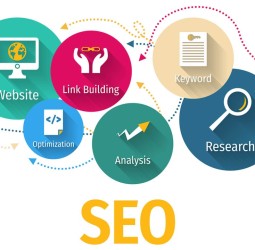Growing your business in the industrial infrastructure sector requires strategic planning, effective execution, and adaptability to market trends. Here's a step-by-step guide to help you achieve success:
Understand the Market
- Industry Analysis: Research the industrial infrastructure sector, including current trends, challenges, and opportunities.
- Target Audience: Identify your ideal clients (e.g., government, private companies, real estate developers).
- Competitor Study: Analyze competitors’ strengths, weaknesses, and unique selling points.
Build a Solid Business Plan
- Vision and Mission: Define your business goals and purpose.
- Key Services: Focus on specialized services such as construction, logistics, maintenance, or sustainable infrastructure solutions.
- Financial Planning: Secure funding, manage budgets, and create projections for growth.
Develop a Skilled Team
- Hire Experts: Recruit skilled professionals with experience in engineering, project management, and industrial operations.
- Continuous Training: Offer regular training on the latest technology, safety standards, and best practices.
- Safety Culture: Emphasize safety as a priority to build trust with clients and stakeholders.
Strengthen Your Network
- Partnerships: Collaborate with construction firms, engineering consultancies, and material suppliers.
- Government Relations: Build relationships with regulatory authorities and understand public-private partnership opportunities.
- Industry Events: Attend conferences, expos, and forums to stay updated and network with potential clients.
Embrace Technology
- Digital Transformation: Invest in software for project management, supply chain logistics, and design modeling (e.g., BIM).
- Automation: Adopt advanced machinery and IoT for efficiency and cost savings.
- Sustainability: Incorporate green technologies to meet growing demands for eco-friendly infrastructure.
Diversify Your Offerings
- Specialized Services: Offer niche services like retrofitting, renewable energy infrastructure, or smart city planning.
- Geographic Expansion: Enter emerging markets with growing industrial needs.
- Custom Solutions: Tailor services to meet specific client requirements.
Build Your Brand
- Marketing Strategy: Use a mix of online and offline channels to promote your expertise.
- Portfolio Showcase: Highlight completed projects to demonstrate capability and reliability.
- Client Testimonials: Leverage client feedback to build credibility.
Focus on Quality and Compliance
- Standard Adherence: Ensure all projects meet local and international regulations.
- Quality Assurance: Implement stringent quality control measures for all deliverables.
- Sustainability Goals: Align projects with environmental, social, and governance (ESG) principles.
Secure Contracts and Funding
- Tender Processes: Participate in government and private tenders to secure large-scale contracts.
- Funding Sources: Explore financing options such as venture capital, loans, or joint ventures.
- Incentives: Utilize tax benefits and incentives for infrastructure development projects.
Monitor and Adapt
- Performance Metrics: Track project success, client satisfaction, and financial performance.
- Feedback Loops: Regularly collect feedback from clients and employees to identify areas for improvement.
- Market Adaptation: Stay agile and pivot your strategy to align with industry and economic changes.


 PTFbuzz
PTFbuzz












